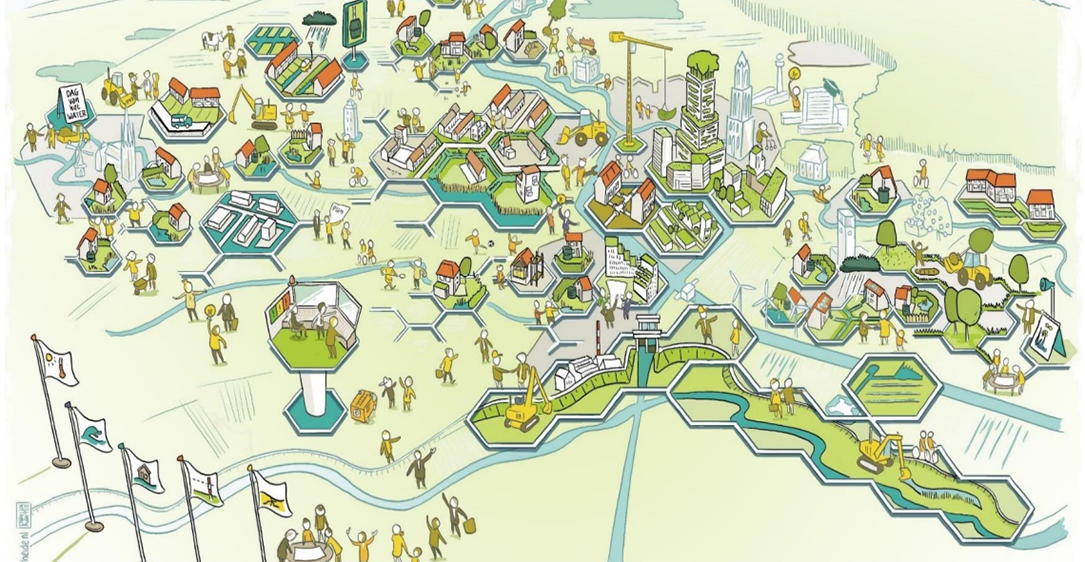Institutional settings
Spatial adaptation falls within the jurisdiction of various public and private actors. For the successful implementation of spatial adaptation measures, responsibilities and roles of the different actors need to be clearly distinguished and defined in policy guidelines.
Delta Programme Spatial Adaptation
Science-policy interface
Which legal and policy instruments promote effective implementation of climate adaptation policies? That was the key question Herman Kasper Gilissen, Marleen van Rijswick, Dries Hegger, Heleen Mees and Mandy van den Ende, together with 15 law students, addressed in their project ‘Climate Resilient Residential Areas in the Greater Utrecht Region’ (‘Klimaatbestendige woonwijken regio Utrecht’). This inter- and transdisciplinary project was part of a pilot funded by the Dutch delta Program (Delta Program Spatial Adaptation; DPRA) and explicitly focussed on the implementation of climate adaptation. This is innovative from both a scientific and a practical point of view, as most attention until recently is paid to the policy phase.
10 recommendations
By evaluating barriers and opportunities within five pilot projects, the researchers formulated 10 recommendations that could help municipalities improve the development, implementation and evaluation of their climate adaptation programmes (see the final report). The recommendations focussed on improving conditions (technically, administratively and legally) for climate adaptation program leaders to implement policy, such as developing strategies to involve private parties and citizens and embedding a concrete legal and policy framework on climate adaptation on a local level. "Moreover", Herman Kasper Gilissen, associate professor of environmental and water law and governance, explains, "effective and legitimate climate-adaptive measures require the involvement of and cooperation between various municipal departments, corporations, citizens and the regional and national governments".

Rainproof cities in the Netherlands and China
Different legislative approaches
Trends of greening can be observed in multiple cities in deltas worldwide which, besides river and coastal flooding, are also facing pluvial flooding (from localised rainfall). Postdoctoral researcher Liping Dai studies the governance of water programs in urban areas in the Netherlands and China, comparing the legal system of rainproof cities (called “Sponge cities” in China). She observed that in China, spatial adaptation measures are led by the government, with a narrow time frame and little room for stakeholder involvement, technical and professional development. In contrast, in the Netherlands, policy processes are much more interactive but lack clear guidelines and targets.
Good practices
Liping Dai argues, "Both the Netherlands and China can learn from each other". She formulated good practices for China which are to embed Sponge cities in local political systems by building institutional capacities and to enable private investments. For the Netherlands, she recommended to formulate clear definitions of rainproof cities and to develop evaluation tools for monitoring purposes.

